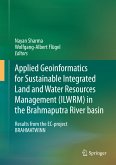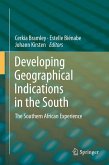More than 200 major river basins are shared by two or more countries and, together, these basins account for about 60% of the earth's land area, constituting a significant portion of the world's fresh water resources. They are thus both a significant asset to the nations sharing them, as well as a potential source of conflict. This book presents a generic framework for the analysis of decision making on international river issues. It emphasises the strategic character of the interactions between the basin states and addresses learning and institutionalization processes, taking account of the influence of the context on the decision making process. The case of the river Scheldt covers negotiations on the Belgian-Dutch water conventions covering a number of international issues relating to the river basins of the Scheldt and the Meuse, such as construction projects aimed at improving the maritime access to the port of Antwerp, the maintenance of the navigation channel in the Western Scheldt, pollution of the waters in the two rivers, and the distribution of water from the Meuse. The final part of the book contains a typology of strategies for the solution of upstream-downstream problems in international river basins.
Audience: All those interested in international water and environmental management, international negotiations and politics, and public policy.
Dieser Download kann aus rechtlichen Gründen nur mit Rechnungsadresse in A, B, BG, CY, CZ, D, DK, EW, E, FIN, F, GR, HR, H, IRL, I, LT, L, LR, M, NL, PL, P, R, S, SLO, SK ausgeliefert werden.









